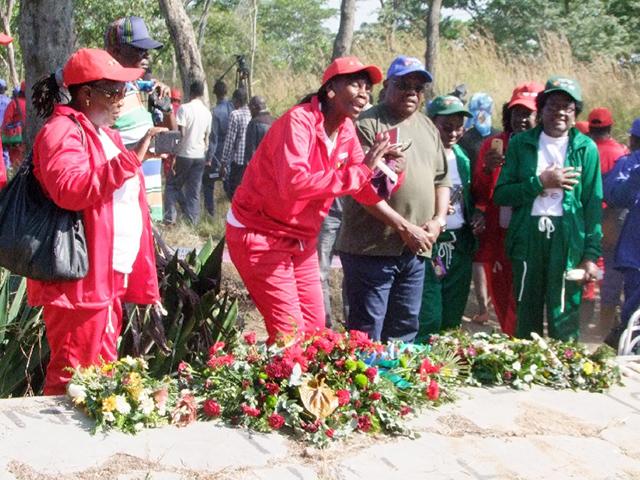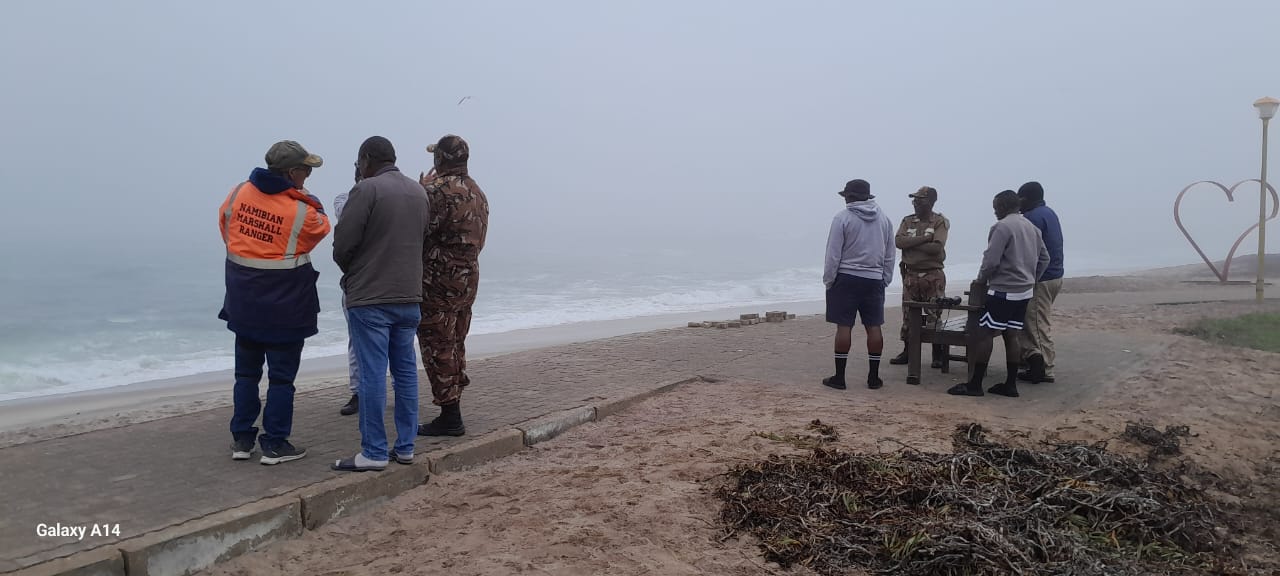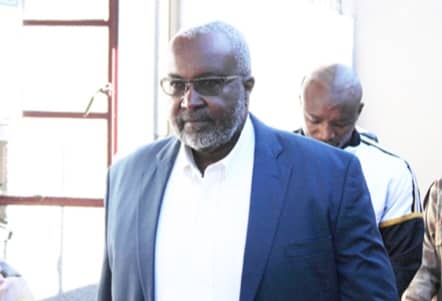WASHINGTON – Photos of the flag-draped coffins of US soldiers killed in Iraq played big in the US press on Friday, angering the Pentagon and sparking public debate over which is more important: military policy or constitutionally protected freedom of information.
Publication of the photos embarrassed the Defence Department, which bars the press from access to military coffins being transported. “The department’s policy regarding no media coverage of remains transfer has been in effect since 1991,” said a Pentagon spokesman.”The principal focus and purpose of the policy is to protect the wishes and the privacy of the families during their time of greatest loss and grief.”The result of that policy has, until now, been a total absence of images of the transport of military coffins in the US press, particularly of their arrival at the Dover, Delaware, military base that is the terminus for most coffins arriving from Iraq.”We need to stop hiding the deaths of our young; we need to be open about their deaths,” said Jane Bright, whose 24-year-old son, Evan Ashcraft, was killed in combat in July.Opponents of US military involvement in Iraq call the ban a government attempt to diminish the impact of the loss of life on public opinion.More than 350 photos of the coffins, taken at Dover by military photographers, were published this week on an Internet site (www.thememoryhold.org), which requested and secured them from the military under the Freedom of Information Act (FOIA), an Air Force spokeswoman told AFP.”Until this is resolved, we are not going to release anything through Air Force channels,” said Lieutenant Colonel Jennifer Cassidy.”If media or anybody want to get access, they’re free to file a Freedom of Information Act request.”Deputy Under Secretary of Defence John Molino, a Pentagon family relations official, told reporters the decision to release the photos was regrettable, but conceded constitutional law would always supersede military policy.The White House said President George W Bush had seen the photos and sided with Pentagon policy against publication.”The sensitivities and the privacy of the families of the fallen must be the first priority and remain to be the first priority,” White House spokesman Trent Duffy told reporters travelling with Bush aboard Air Force One.”It’s necessary at this point to ensure that those who have fallen have not provided that sacrifice in vain,” he said.Molina said military lawyers were “looking into the case to see if (the release of photos) was an appropriate action or an inappropriate action”.Russ Kick, creator of the website that published the photos and an avid First Amendment supporter, filed the FOIA request for the photos last year.”The Pentagon’s not happy,” said Kick.”I think it was a decision just of the Air Force, from what I can tell.It went all the way up to their top council.They’re the ones who decided this.So I have the feeling somebody’s been called on the carpet in the Air Force over there, over this.”Elsewhere, a photo of some 20 military coffins being transported to Kuwait aboard an Air Force cargo plane, secretly taken by a civilian employee of a military subcontractor, was published last week Sunday by the Seattle Times in Washington state.On Thursday the photographer, Tami Silicio, was fired by the subcontractor, but had no regrets.”I feel it’s important for people to know how well their children are being taken care of,” she told ABC.”And… what these parents go through from the time they’re notified to the time they get home, I think that they go through, you know, wonderment on what’s going on.Where is… what’s happening to their child. Or daughter, or loved one.”I think, if the administration were more sympathetic, they would see that this is a positive thing, that the country is supportive and being there,” said Silicio, adding that she had received numerous messages of support.- Nampa-AFP-AP”The department’s policy regarding no media coverage of remains transfer has been in effect since 1991,” said a Pentagon spokesman.”The principal focus and purpose of the policy is to protect the wishes and the privacy of the families during their time of greatest loss and grief.”The result of that policy has, until now, been a total absence of images of the transport of military coffins in the US press, particularly of their arrival at the Dover, Delaware, military base that is the terminus for most coffins arriving from Iraq.”We need to stop hiding the deaths of our young; we need to be open about their deaths,” said Jane Bright, whose 24-year-old son, Evan Ashcraft, was killed in combat in July.Opponents of US military involvement in Iraq call the ban a government attempt to diminish the impact of the loss of life on public opinion.More than 350 photos of the coffins, taken at Dover by military photographers, were published this week on an Internet site (www.thememoryhold.org), which requested and secured them from the military under the Freedom of Information Act (FOIA), an Air Force spokeswoman told AFP.”Until this is resolved, we are not going to release anything through Air Force channels,” said Lieutenant Colonel Jennifer Cassidy.”If media or anybody want to get access, they’re free to file a Freedom of Information Act request.”Deputy Under Secretary of Defence John Molino, a Pentagon family relations official, told reporters the decision to release the photos was regrettable, but conceded constitutional law would always supersede military policy.The White House said President George W Bush had seen the photos and sided with Pentagon policy against publication.”The sensitivities and the privacy of the families of the fallen must be the first priority and remain to be the first priority,” White House spokesman Trent Duffy told reporters travelling with Bush aboard Air Force One.”It’s necessary at this point to ensure that those who have fallen have not provided that sacrifice in vain,” he said.Molina said military lawyers were “looking into the case to see if (the release of photos) was an appropriate action or an inappropriate action”.Russ Kick, creator of the website that published the photos and an avid First Amendment supporter, filed the FOIA request for the photos last year.”The Pentagon’s not happy,” said Kick.”I think it was a decision just of the Air Force, from what I can tell.It went all the way up to their top council.They’re the ones who decided this.So I have the feeling somebody’s been called on the carpet in the Air Force over there, over this.”Elsewhere, a photo of some 20 military coffins being transported to Kuwait aboard an Air Force cargo plane, secretly taken by a civilian employee of a military subcontractor, was published last week Sunday by the Seattle Times in Washington state.On Thursday the photographer, Tami Silicio, was fired by the subcontractor, but had no regrets.”I feel it’s important for people to know how well their children are being taken care of,” she told ABC.”And… what these parents go through from the time they’re notified to the time they get home, I think that they go through, you know, wonderment on what’s going on.Where is… what’s happening to their child. Or daughter, or loved one.”I think, if the administration were more sympathetic, they would see that this is a positive thing, that the country is supportive and being there,” said Silicio, adding that she had received numerous messages of support.- Nampa-AFP-AP
Stay informed with The Namibian – your source for credible journalism. Get in-depth reporting and opinions for
only N$85 a month. Invest in journalism, invest in democracy –
Subscribe Now!










